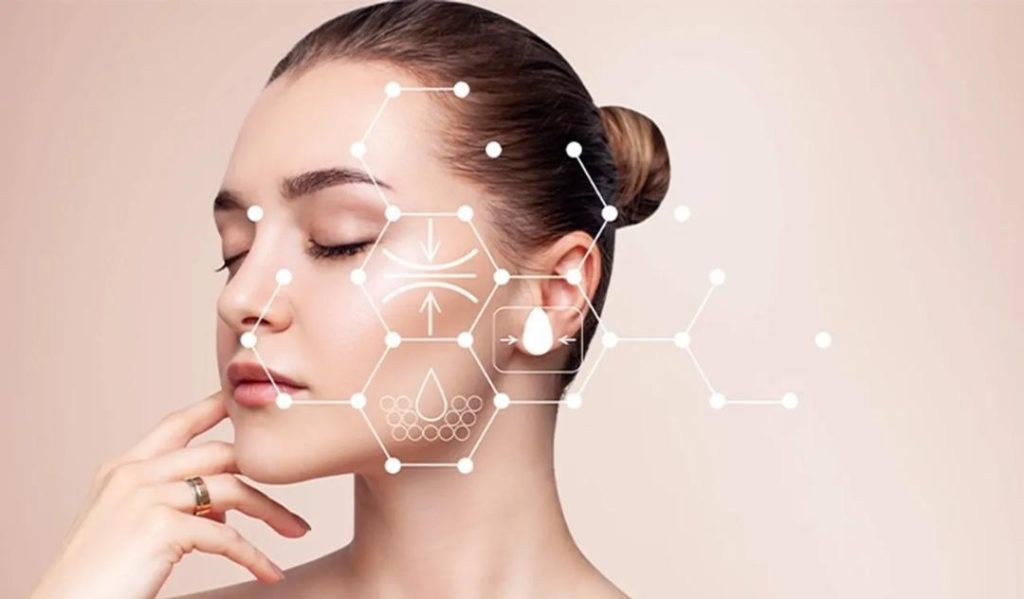
How AI & Innovation are Redefining the Beauty and Wellness Landscape
The beauty and wellness industry has undergone a significant transformation in recent years, driven by advancements in technology, shifting consumer preferences, and a growing emphasis on personalization. As we look ahead to 2025, it’s clear that the skincare industry is poised for further evolution, with a focus on inclusivity, cutting-edge innovation, and a deeper understanding of diverse skin needs.
Personalization: The New Normal
One of the most significant trends in skincare is the rise of personalization. Gone are the days of one-size-fits-all skincare routines. Today’s consumers expect products that are tailored to their unique skin type, concerns, and goals. To meet this demand, skincare brands are leveraging artificial intelligence (AI) and machine learning algorithms to create customized skincare solutions.
AI-powered skincare platforms use data and analytics to analyze an individual’s skin type, analyze their skin concerns, and recommend personalized product combinations. This approach not only increases the effectiveness of skincare products but also reduces the risk of adverse reactions and skin irritation.
Inclusivity: The Future of Skincare
The beauty and wellness industry has long been criticized for its lack of diversity and inclusivity. However, the trend towards inclusivity is gaining momentum, with skincare brands recognizing the importance of representing diverse skin tones, types, and concerns.
In 2025, we can expect to see a significant increase in skincare products that cater to a broader range of skin types, including darker skin tones, sensitive skin, and skin with specific concerns such as acne, hyperpigmentation, or rosacea.
Cutting-Edge Innovation
The skincare industry is also being driven by cutting-edge innovation, with a focus on harnessing the power of science and technology to create more effective and efficient skincare solutions.
For example, nanotechnology is being used to develop smaller, more targeted skincare products that can penetrate deeper into the skin, delivering more effective results. Additionally, the use of biotechnology and bioengineering is enabling the creation of skincare products that are more sustainable, eco-friendly, and gentle on the skin.
Wellness: The New Focus
In 2025, skincare is no longer just about physical appearance; it’s about wellness. Consumers are increasingly recognizing the importance of skincare as a vital component of overall health and wellness.
As a result, skincare brands are shifting their focus from solely addressing skin concerns to promoting overall wellness and self-care. This includes the development of products that address emotional and mental well-being, such as skincare products that promote stress relief, improve sleep quality, or enhance mood.
The Role of AI in Skincare
AI is playing a significant role in the skincare industry, from product development to customer engagement. AI-powered skincare platforms use machine learning algorithms to analyze consumer data, track skin health, and provide personalized product recommendations.
AI is also being used to improve skincare product development, enabling brands to create more effective and targeted products by analyzing consumer feedback, skin type, and skin concerns.
The Future of Skincare: Trends to Watch
As we look ahead to 2025, there are several trends that are set to shape the skincare industry:
- Voice-Activated Skincare: The rise of voice-activated assistants is expected to revolutionize the way we interact with skincare products. Expect to see more voice-activated skincare devices and apps that provide personalized product recommendations and skincare advice.
- Customized Skincare Kits: With the rise of personalization, customized skincare kits are expected to become increasingly popular. These kits will be tailored to an individual’s unique skin type, concerns, and goals, providing a more effective and efficient skincare routine.
- Sustainable Skincare: The skincare industry is under increasing pressure to reduce its environmental impact. Expect to see more sustainable skincare products, packaging, and practices, as well as a focus on eco-friendly ingredients and manufacturing processes.
- Skin Health Monitoring: With the rise of wearable technology and health monitoring devices, skincare brands are expected to incorporate skin health monitoring into their products and services. This will enable consumers to track their skin health, identify skin concerns earlier, and receive personalized product recommendations.
Conclusion
The skincare industry is on the cusp of a significant revolution, driven by advancements in AI, innovation, and a growing emphasis on personalization, inclusivity, and wellness. As we look ahead to 2025, it’s clear that the skincare landscape will be shaped by trends such as voice-activated skincare, customized skincare kits, sustainable skincare, and skin health monitoring.
By embracing these trends, skincare brands can provide consumers with more effective, efficient, and personalized skincare solutions, ultimately promoting overall wellness and self-care.
Source: https://www.shethepeople.tv/author-spotlight/guest-contributions/skincare-trends-for-2025-8728129






